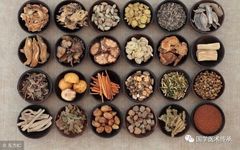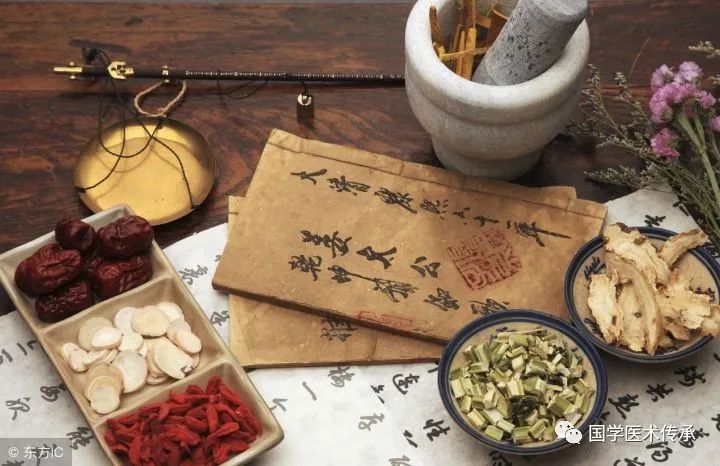
01. Cè Bǎi Yè (Platycladus orientalis) – Bitter, used for vomiting, nosebleeds, and dysentery; promotes hair growth and dispels dampness.
02. Huái Shí (Sophora japonica) – Bitter, treats damp itching and hemorrhoids; stops excessive salivation.
03. Wǎ Lèng Zǐ (Cynanchum atratum) – Salty, effective for blood clots in women and phlegm accumulation in men; can resolve symptoms.
04. Zōng Lín Zǐ (Phoenix dactylifera) – Bitter, used for diarrhea and dysentery; treats excessive vaginal discharge and bleeding.
05. Dōng Kuí Zǐ (Malva verticillata) – Cold, prevents miscarriage and facilitates childbirth; helps with urinary issues.
06. Yín Yáng Huò (Epimedium) – Spicy, enhances yang energy, strengthens bones, and increases vitality.
07. Sōng Zhī (Pinus) – Sweet, nourishes yin and tonifies yang; dispels wind and calms the organs; can be applied topically for wounds.
08. Fù Pén Zǐ (Rubus idaeus) – Sweet, treats kidney deficiency and improves eyesight; replenishes essence.
09. Hé Huān (Albizia julibrissin) – Sweet, calms the mind and brightens the eyes; promotes happiness and reduces worries.
10. Jīn Yīng Zǐ (Prunus cerasifera) – Sweet, prevents nocturnal emissions and enuresis; effective against parasites.
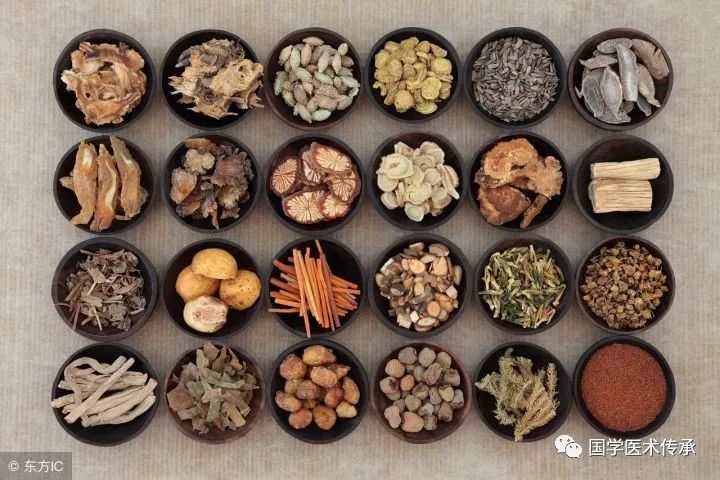
11. Chǔ Shí (Broussonetia papyrifera) – Sweet, strengthens tendons and improves vision; tonifies qi and replenishes deficiency; indicated for impotence.
12. Yù Lǐ Rén (Prunus persica) – Sour, breaks blood stasis and moistens dryness; reduces swelling and promotes bowel movements.
13. Mò Shí Zǐ (Terminalia chebula) – Bitter, nourishes blood and generates essence; excellent for hair dyeing; effective against dysentery.
14. Kōng Qīng (Indigofera tinctoria) – Cold, treats eye conditions; alleviates redness and swelling; restores vision.
15. Mì Tuó Sēng (Mucuna pruriens) – Salty, treats dysentery and hemorrhoids; can eliminate vitiligo and heal various sores.
16. Fú Lóng Gān (Pangolin) – Warm, treats epidemics and stabilizes pregnancy; alleviates cough and anxiety.
17. Shí Huī (Lime) – Spicy, potent and toxic; expels parasites and induces abortion rapidly.
18. Chuān Shān Jiǎ (Pangolin) – Toxic, treats hemorrhoids and ulcers; alleviates swelling and pain.
19. Qiū Yǐn (Earthworm) – Cold, treats febrile diseases; effective against high fever and delirium.
20. Zhī Zhū (Spider) – Cold, treats hernias and snake bites; can be used for swelling and topical applications.
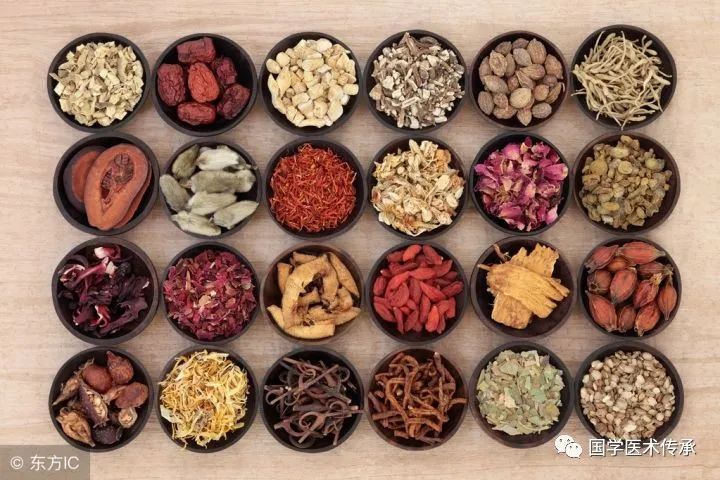
21. Chán Chú (Toad) – Cool, eliminates parasites and treats epidemics; can dispel toxic sores.
22. Cì Wèi Pí (Hedgehog skin) – Bitter, primarily treats hemorrhoids; alleviates swelling and pain.
23. Gā Gě (Gecko) – Salty, treats lung conditions and blood cough; can dispel evil spirits.
24. Lóu Gū (Mole cricket) – Salty, treats edema; effective for various body parts.
25. Wō Niú (Snail) – Salty, treats facial paralysis and convulsions; effective for prolapse.
26. Sāng Piāo Xiāo (Silkworm) – Salty, treats urinary issues and alleviates pain; essential for deficiency.
27. Tián Luó (Apple snail) – Cold, promotes urination and reduces swelling; effective for hangover relief.
28. Xiàng Yá (Ivory) – Neutral, treats foreign body sensation in the throat; promotes urination and heals sores.
29. Shuǐ Zhì (Leech) – Salty, eliminates stasis and promotes menstruation; can induce abortion.
30. Bèi Zǐ (Shellfish) – Salty, relaxes muscles and disperses lumps; promotes urination and clears vision.
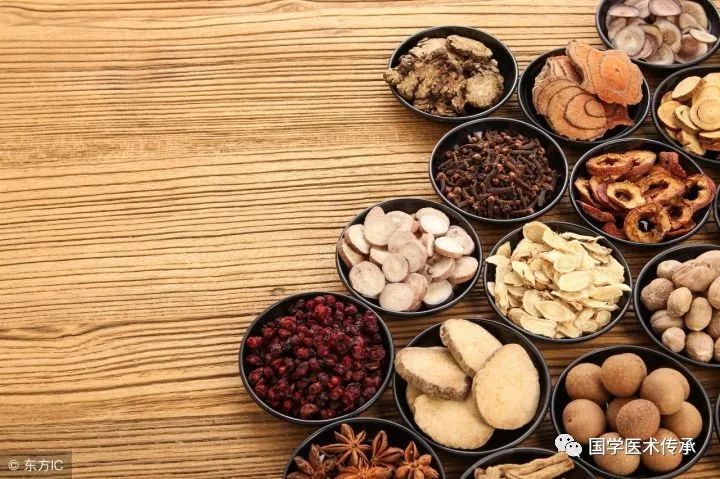
31. Gā Lì Ròu (Clam meat) – Cold, stops thirst and alleviates alcohol toxicity; stimulates appetite.
32. Hǎi Fěn (Sea powder) – Salty, treats stubborn phlegm; effective for women’s leucorrhea.
33. Shí Xiè (Stone crab) – Salty, treats eye swelling and dispels toxins; promotes childbirth.
34. Hǎi Piāo Xiāo (Sea snail) – Salty, treats red and white discharge; alleviates anxiety and swelling.
35. Wú Míng Yì (Unknown herb) – Sweet, heals wounds and stops pain; promotes tissue regeneration.
36. Qīng Máng Shí (Green stone) – Cold, treats phlegm and aids digestion; has mysterious effects.
37. Cí Shí (Magnetite) – Salty, neutralizes iron toxicity; can expel needles if swallowed.
38. Huā Ruǐ Shí (Flower stone) – Cold, stops bleeding; effective for postpartum hemorrhage.
39. Dài Zhě Shí (Dai Zhe Shi) – Cold, treats uterine bleeding and childhood diarrhea; alleviates convulsions.
40. Hēi Qiān (Black lead) – Sweet, stops vomiting and alleviates anxiety; calms the mind.
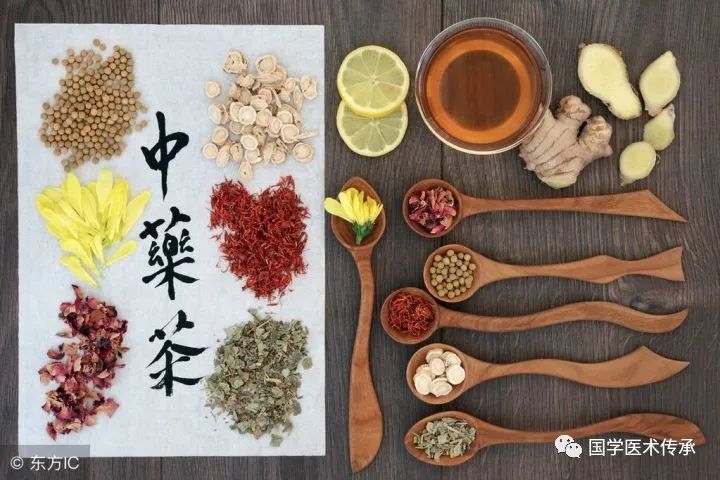
41. Yín Xiè (Silver leaf) – Spicy, treats delirium and confusion; calms the mind and brightens the eyes.
42. Jīn Xiè (Golden leaf) – Sweet, calms the spirit; treats mania and regulates blood flow.
43. Gǒu Jǐ (Dog spine) – Sweet, used in wine for back pain; alleviates wind-cold-dampness.
44. Gǔ Suì Bǔ (Drynaria fortunei) – Warm, heals fractures and joint pain; excellent for blood stasis.
45. Qiàn Cǎo (Rubia cordifolia) – Bitter, treats blood toxicity and menstrual disorders; alleviates heat.
46. Yù Zhī Zǐ (Yuzhi fruit) – Sweet, treats poisoning and expels parasites.
47. Wáng Bù Liú Xíng (Vaccaria segetalis) – Regulates menstruation and induces labor; alleviates wind and spasms.
48. Láng Dú (Wolf poison) – Spicy, breaks up masses and treats ulcers; eliminates toxins.
49. Lí Lú (Rhubarb) – Spicy, induces vomiting and treats diarrhea; expels parasites.
50. Bā Dòu (Croton) – Spicy, expels stagnation and promotes labor.
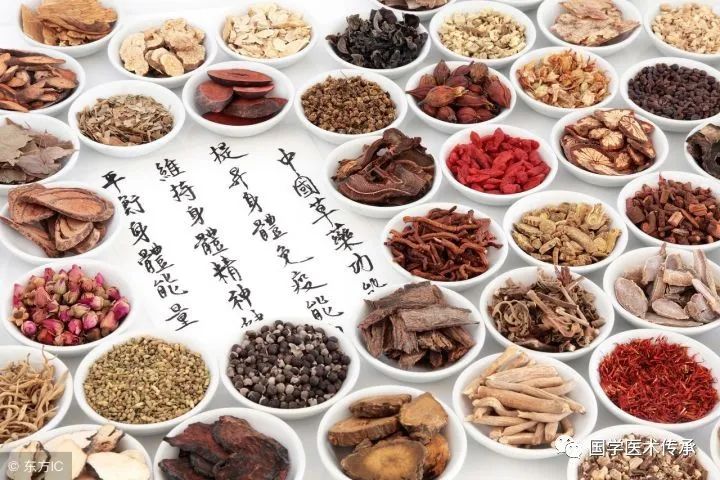
51. Bì Bó (Zanthoxylum) – Spicy, warms the middle and regulates qi; treats hernias and cholera.
52. Bǎi Bù (Stemona) – Sweet, treats bone steaming and expels parasites; effective for chronic cough.
53. Jīng Mò (Ink) – Spicy, stops bleeding and postpartum hemorrhage; effective for rapid hemostasis.
54. Huáng Jīng Zǐ (Huang Jing) – Bitter, treats cough and regulates lung qi.
55. Nǚ Zhēn Shí (Ligustrum lucidum) – Bitter, promotes black hair and strengthens muscles; dispels wind and tonifies deficiency.
56. Guā Dǐ (Melon seed) – Bitter and Cold, induces phlegm and reduces swelling; treats jaundice.
57. Sù Ké (Millet husk) – Astringent, treats diarrhea and cough; effective for various ailments.
58. Bā Dòu (Croton) – Spicy and Hot, eliminates cold accumulation and phlegm; promotes digestion.
59. Yè Míng Shā (Night shining sand) – Feces, induces abortion and treats childhood diseases.
60. Bān Máo (Cantharides) – Toxic, breaks blood stasis and promotes menstruation; effective for various sores.
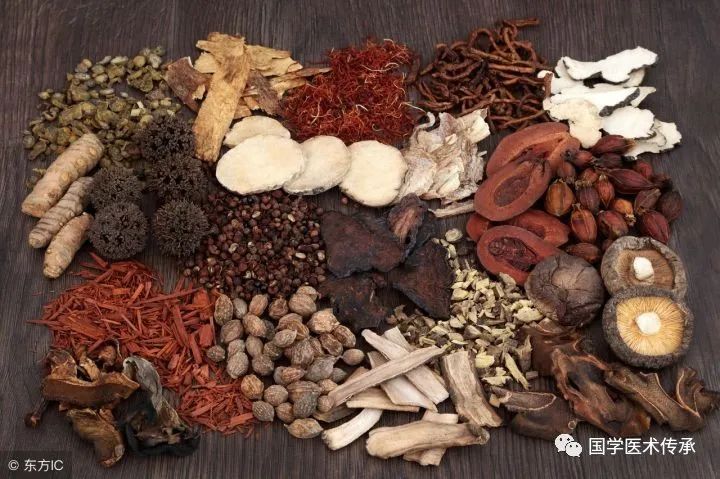
61. Cán Shā (Silkworm excrement) – Warm, treats dampness and skin rashes; alleviates thirst.
62. Hú Huáng Lián (Coptis chinensis) – Bitter, treats bone steaming and childhood diarrhea; alleviates night sweats.
63. Shǐ Jūn (Shijun) – Sweet and Warm, eliminates dampness and expels parasites.
64. Chì Shí Zhī (Red stone) – Warm, protects the stomach and promotes healing; astringes and alleviates diarrhea.
65. Qīng Dài (Indigo) – Salty and Cold, calms the liver and alleviates heat and toxins.
66. Ā Jiāo (Donkey-hide gelatin) – Sweet and Warm, stops cough and treats blood loss; beneficial for weakness.
67. Bái Fán (Alum) – Sour, transforms phlegm and detoxifies; effective for various conditions.
68. Wǔ Bèi (Five-fold bitter) – Bitter and Sour, treats dental issues and abscesses; alleviates wind-heat.
69. Xuán Míng Fěn (Xuanming powder) – Spicy, eliminates old residues and transforms phlegm; treats heat conditions.
70. Tōng Cǎo (Tetrapanax) – Sweet, treats bladder issues and reduces swelling; effective for breast conditions.
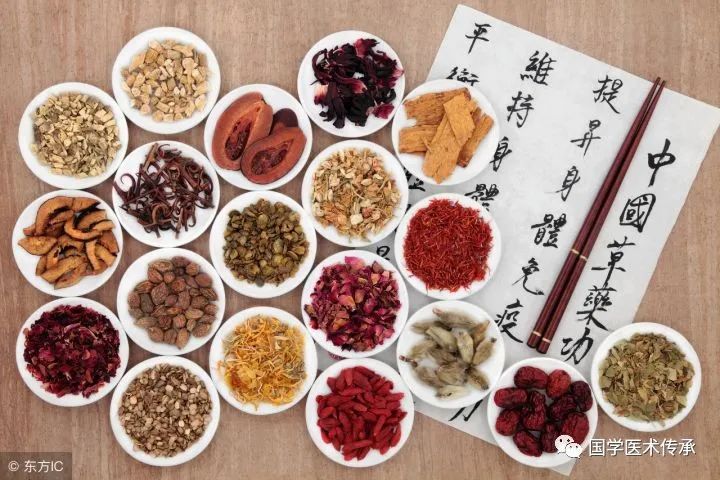
71. Gǒu Qǐ (Goji berry) – Sweet and Warm, replenishes essence and nourishes marrow; improves vision and enhances vitality.
72. Huáng Jīng (Polygonatum) – Sweet, calms the abdomen; a great tonic for fatigue and weakness.
73. Hé Shǒu Wū (Fallopia multiflora) – Sweet, replenishes essence and promotes black hair; associated with longevity.
74. Wǔ Wèi (Five flavors) – Sour and Warm, generates fluids and quenches thirst; treats chronic cough and deficiency.
75. Shān Zhū (Cornus) – Warm, astringes essence and nourishes marrow; alleviates tinnitus and back pain.
76. Shí Hú (Dendrobium) – Sweet, calms the mind and strengthens bones; dispels cold and alleviates pain.
77. Pò Gù Zhǐ (Pogostemon) – Warm, alleviates back pain and strengthens essence; used with salt and wine.
78. Shān Yào (Chinese yam) – Sweet and Warm, regulates the spleen and stops diarrhea; tonifies the kidneys and treats deficiency.
79. Cōng Róng (Cistanche) – Sweet, strongly replenishes essence and blood; can cause loose stools if used excessively.
80. Tù Sī (Cuscuta) – Sweet and Neutral, treats nocturnal emissions and back pain; strengthens tendons and marrow.
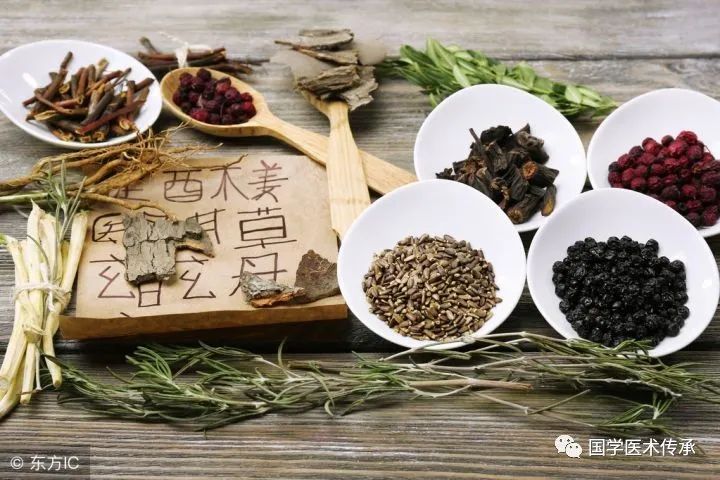
81. Niú Xī (Achyranthes bidentata) – Bitter, dispels dampness and alleviates pain; treats urinary issues.
82. Bā Jì (Morinda officinalis) – Spicy and Sweet, strongly replenishes deficiency; treats nocturnal emissions and strengthens the foundation.
83. Xiān Máo (Curculigo orchioides) – Spicy, treats leg and foot cramps; alleviates weakness and promotes yang energy.
84. Mǔ Lì (Oyster shell) – Slightly Cold, astringes essence and stops sweating; treats abdominal pain and phlegm.
85. Lián Zǐ (Lotus seed) – Bitter and Cold, treats bladder issues and alleviates dampness; promotes urination.
86. Bǐ Jiè (Biota orientalis) – Sweet and Bitter, dispels wind-cold-dampness; alleviates back pain.
87. Jì Shēng (Parasitic plant) – Sweet and Bitter, treats back pain and strengthens bones; effective for rheumatism.
88. Xù Duàn (Dipsacus) – Spicy, connects bones and tendons; treats injuries and prevents nocturnal emissions.
89. Lóng Gǔ (Dragon bone) – Sweet, treats nocturnal emissions and abdominal pain; alleviates anxiety and heat.
90. Rén Zhī Tóu (Human hair) – Sweet, quickly nourishes yin; treats bleeding and anxiety.
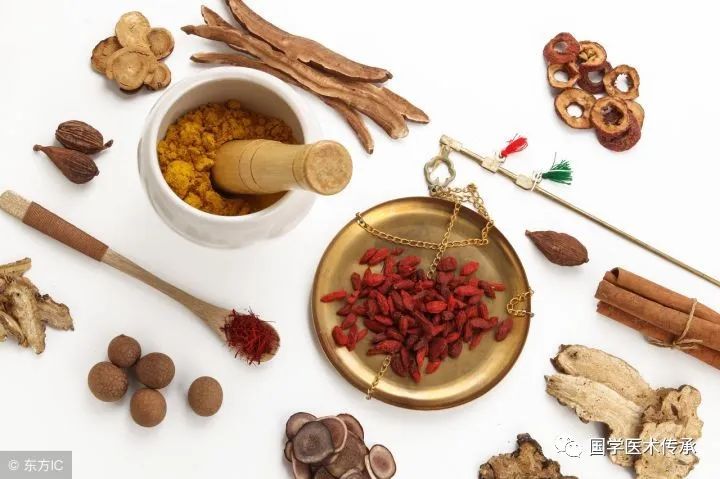
91. Tiān Lín Gài (Heavenly cover) – Salty, treats fever and blood loss; effective for rapid recovery.
92. Què Luǎn (Quail egg) – Warm, supports yang and strengthens the body; promotes closure.
93. Lù Róng (Deer antler velvet) – Sweet and Warm, replenishes qi and nourishes yin; treats blood loss and abdominal pain.
94. Lù Jiǎo Jiāo (Deer horn glue) – Warm, treats bleeding and injuries; effective for fatigue and weakness.
95. Tǐng Rǔ (Tingru) – Sweet, replenishes yang and dispels evil; treats weakness and injuries.
96. Zǐ Hē Chē (Cordyceps) – Sweet, treats various deficiencies; nourishes and strengthens the foundation.
97. Fēng Xiāng (Maple fragrance) – Spicy, essential for surgical applications; treats skin conditions and tooth pain.
98. Tán Xiāng (Sandalwood) – Spicy, promotes appetite and alleviates abdominal pain; dispels evil spirits.
99. Ān Xī Xiāng (Benzoin) – Spicy, dispels evil and drives away spirits; can induce abortion.
100. Sū Hé Xiāng (Suhua) – Sweet, eliminates evil and kills spirits; treats seizures and nightmares.
We are pleased to disseminate knowledge about traditional Chinese medicine. For specific dosages and methods, please consult a physician based on your condition. For more health knowledge, feel free to follow or share this post. Wishing everyone good health!

